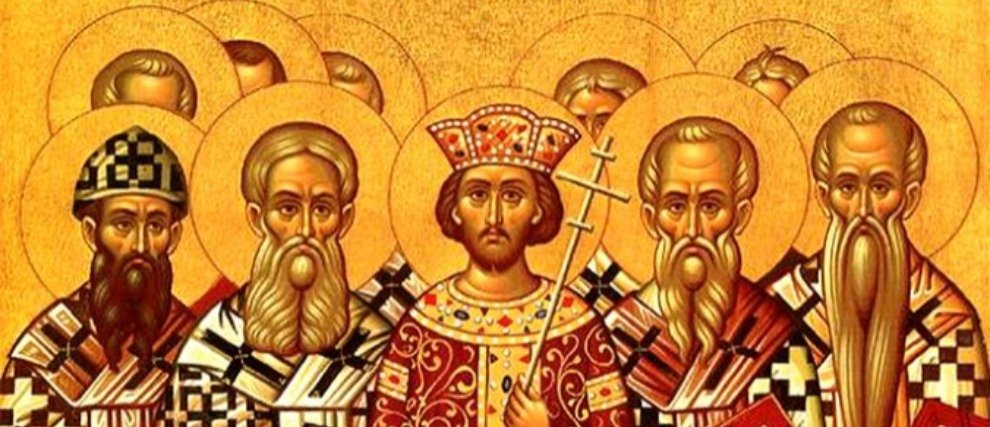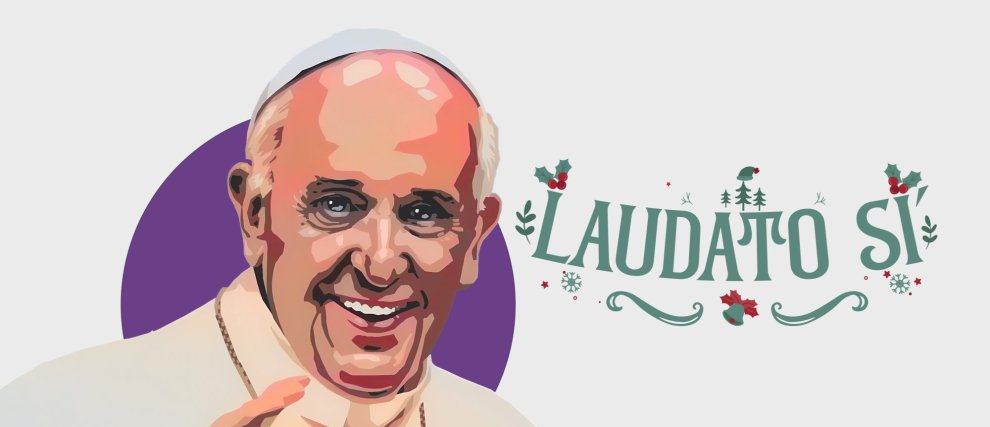Guide to the Catechism of the Catholic Church
The Catechism of the Catholic Church (CCC) is a work that aims to summarize the faith, teaching and morals of the Catholic Church, in particular to keep faith intact. It was on October 11, 1992 that Pope John Paul II ordered its promulgation, through the apostolic constitution Fidei depositum. We find in it what the Church believes in.
We all have questions about faith, about God, about life, death … The Catholic Church, through its catechism, gives us valuable elements to better approach these beautiful mysteries.
What is the Catechism of the Catholic Church?
Origin of the Catechism of the Catholic Church
No catechism was written following the Second Vatican Council (1962-1965), unlike the Council of Trent (1542-1563). Therefore, as a follow-up to the Council, Pope John Paul II convened a synod of bishops in 1985. The report of the Synod Fathers recommended "the drafting of a catechism or compendium of all Catholic doctrine both on faith and on morals, which would be a reference text for the catechisms or compendiums that are composed in the various countries. The presentation of the doctrine must be biblical and liturgical, exposing a sure doctrine and at the same time adapted to the current life of Christians. “In 1986, a commission of cardinals and bishops was formed. After consulting a very large number of experts, and going through several versions, the final text was approved by the commission in February 1992, before Pope John Paul ordered its dissemination on October 11, 1992, through the apostolic constitution Fidei Depositum.
Following this Catechism, an abridged version (a compendium) was published in 2015, as well as a version for young people, known as YouCat.
Purpose and addressees of the Catechism
Number 11 of the Catechism of the Catholic Church deals with the purpose and recipients of the Catechism of the Catholic Church. In summarizing this article, the Catechism aims to present a statement of the fundamental contents of Catholic doctrine on faith and morals, in the light of the Second Vatican Council (1962-1965) and the Tradition of the Church.
Its main sources are based on Sacred Scripture, the Holy Fathers, the liturgy, and the Magisterium of the Church, that is to say the authority in matters of morality and faith of the bishops and the Pope.
Structure of the Catechism of the Catholic Church
The Catechism of the Catholic Church is composed of four main parts:
1. Part One: The Profession of Faith
2. Part Two: The Sacraments of the Faith (or the Celebration of the Christian Mystery)
3. Part Three: The Life of Faith (or Life in Christ)
4. Part Four: Prayer in the Life of the Faith (or Christian Prayer)
Why create Catechism?
Much more than a book on teaching and morals, the Catechism of the Catholic Church makes it possible, among other things:
- To discover or rediscover the essential content of faith
- To make or renew a personal encounter with Christ
- To seek answers to questions about one's faith, or about a situation
- To be better trained to answer the essential questions of faith
What is the difference between catechism and catechesis?
The catechism is a statement of the contents of Catholic doctrine on faith and morals.
Catechesis is an initiation and a deepening of Christian life. It makes it possible to make the Word of God resonate so that it can echo within the person and bring them to an encounter with and a path to Christ. Catechesis, which is carried out by trained people called catechists, can therefore come in many forms, not only for young people, but for at all ages.
The Church's answers to my questions
We all have questions. But answers ...
Whether it is in the face of existential or more prosaic questions, we are sometimes lost. Voices rise from all sides, but in this confusion, it is difficult to find one’s way.
"I am the Way, the Truth and the Life" (John 14:6), Jesus tells us. Christ is the answer to our questions. The catechism helps us to receive his message in our lives.
All my questions about faith
Whatever our journey of faith and where we are in our spiritual life, we can face questions. What is it to have faith?
Find the Catholic Church's answers to these questions in our articles:
- Can I have faith and have doubts? How to grow your faith? Can I lose faith?
- Do angels exist? Do I have a guardian angel? …
- Should we really believe in the resurrection? Was Jesus really resurrected?
- Does Heaven exist? What does it look like? How do I get in?
- Does Hell exist? If God is forgiveness, who goes to hell?
- What is Purgatory?
- How do I make a personal encounter with Christ?
- If God exists, why is there evil?
All my questions about Sacraments
A Christian life is nourished by sacraments. They are strong moments of encounters with God who acts in us.
Find the Catholic Church's answers to these questions about Church sacraments in our articles:
- What is a sacrament? What are the 7 sacraments? Are there any sacraments more important than others?
- What is baptism? What is it for? Why baptize babies? Can you go to heaven without being baptized?
- What is the Sacrament of Penance? Why is it important to confess? How do I prepare for this?
- What is the Sacrament of Confirmation? Is there an age to ask for it?
- What does it mean to get married in church? How is marriage a sacrament?
- What is being ordained? Why can't women be ordained in the Catholic Church?
- What is the Anointing of the Sick? Why don't we say Final Anointing anymore? In what contexts can I ask for it?
- What is the Eucharist? Was Jesus really present in the wafer?
All my questions about prayer
Our relationship with God lives and grows in prayer. In prayer, we are united with God. In Hozana's prayer guide, you will find advice and hundreds of prayers to help you nourish this inner life.
- How to pray if you don’t know how?
- How much time should be given to prayer?
- Can we pray to the Saints and Mary?
- How can we pray with the Bible?
- What are some prayers I can say to get my day off to a good start or before going to bed?
- How to write a prayer intention for universal prayer?
- What is Eucharistic adoration and how to practice it?
- What is Christian Meditation?
- How to pray to the Virgin Mary?
- What are the words of the Our Father, the Apostles’ Creed, the Hail Mary?
- How can we pray the Rosary?
- What is a novena? And how to pray one?
All my questions about my life as a Christian
To be a Christian is to believe in Jesus Christ, but also to choose to live in Him, to follow Him. But concretely, in our daily life, how to live as a Christian, at work, at home, with friends?
Find the Catholic Church's answers to these questions about Church sacraments in our articles:
- How can we forgive? Can we forgive everything?
- What is sin? Are there any sins worse than others?
- What are the dangers of spiritism?
- How do I know my calling?
- How can I live with my suffering?
- How can I reconcile my Christian faith and my professional life? How can my work help me spiritually? How can my faith help me in my work?
- Do I have to enroll my children in catechism? Why not let them choose on their own later what they prefer to do?

